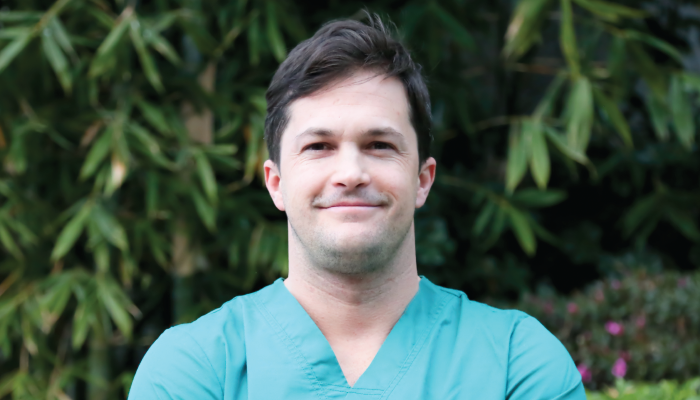
Ivo Ferreira
In the rapidly evolving field of ophthalmology, the definition of what it means to be an excellent surgeon is undergoing a significant transformation. Traditionally, the role of an ophthalmologist was considered a static one, with mastery of cataract surgery techniques being viewed as the pinnacle of achievement. However, to truly excel and redefine excellence in this profession, contemporary ophthalmologists must not only master their surgical skills, they must also embrace a dynamic approach to learning and skill development – an approach that prioritizes continuous improvement, adaptability, and holistic well-being. To achieve this level of expertise, surgeons need to engage in deliberate practice, receive constant feedback, and maintain a high level of performance – all while balancing their personal lives to avoid burnout and stress.
The importance of being trainable
A critical aspect of elite performers – whether in sports, arts, or medicine – is their ability to be trainable. They should thrive on learning from excellent mentors and coaches across various disciplines. Unfortunately, this culture of continuous mentorship and cross-disciplinary learning is often missing in the surgical field. To bridge this gap, we must focus on two key strategies: simulation training and active learning.
Simulation training
Simulation training is the most efficient way for adult learners to acquire and refine skills. It allows for the repetition of tasks, objective feedback, and contextual interference, which helps surgeons to simulate various clinical scenarios, and to make decisions, solve problems and think independently based on whatever scenario they encounter. Regardless of their level of expertise, surgeons can benefit from simulation training by:
- Enhancing psychomotor skills. These include fine motor skills, synchronization with two pedals, viewing in 3D through a microscope, and other microsurgical skills.
- Developing cognitive skills. This encompasses understanding surgical principles, decision-making and problem-solving, as well as situational awareness.
- Cultivating mental skills. Often overlooked, mental skills include maintaining a steady focus, achieving a “state of flow,” building confidence during challenging situations, and managing one’s emotions effectively.
Active learning
Active learning can be incorporated into simulated environments through various methods, each tailored to enhance surgical training:
- Deliberate practice. Focused, repetitive practice of specific skills until they are mastered.
- Feedback loops. Continuous objective feedback on performance to guide improvement.
- Scenario-based training. Simulating real-life surgical scenarios to develop decision-making and problem-solving skills.
- Team-based learning. Collaborative exercises that mimic operating room dynamics, improving communication and teamwork.
- Reflective practice. Encouraging self-assessment and reflection on performance to identify key areas for improvement.
By integrating these active learning techniques into their training regimen, surgeons can achieve better long-term retention of skills and perform at a higher level.
Achieving excellence: A holistic approach
To become a modern, future-ready surgeon, one must adopt a comprehensive training approach that includes controlled rest periods, a balanced diet, and mentorship for both emotional control and work-life balance. This holistic approach ensures that surgeons are not only technically proficient, but also that they are mentally resilient and capable of maintaining their emotional well-being.
The role of mentors and coaches
Mentorship and coaching play crucial roles in the development of an ophthalmologist. The best surgeons in the world often have access to a variety of mentors who provide guidance, support, and insights from different perspectives. In ophthalmology, this culture is not always as prevalent as it should be. Encouraging a mentorship model that includes both regular feedback and guidance from experienced surgeons can significantly enhance the learning curve and skill acquisition of younger surgeons entering the profession.
Embracing change and innovation
As we look towards the future, the role of the ophthalmologist will continue to evolve. Technological advancements, new surgical techniques, and a deeper understanding of human physiology are all contributing to the changing landscape of ophthalmology. The future-ready surgeon must be adaptable, innovative, and open to new ways of thinking and practicing. Change and innovation are constants in the field of medicine, and ophthalmologists must embrace these changes, incorporating new technologies and techniques into their practice. This not only improves patient outcomes, but also keeps the surgeon at the forefront of their field.
Redefining excellence
Redefining what it means to be an ophthalmologist involves embracing continuous improvement and aiming for excellence beyond traditional benchmarks. By focusing on simulation training and active learning, surgeons can develop the psychomotor, cognitive, and mental skills necessary to excel in their field. Additionally, a holistic approach to training and well-being will ensure that they can maintain high performance levels while also enjoying a fulfilling personal life.
The future-ready surgeon is one who is always learning, always improving, and always striving for excellence. They are not only skilled and knowledgeable, but also adaptable, resilient, open to feedback, and committed to continuous improvement. By redefining excellence in ophthalmology and focusing on holistic training approaches, we can ensure that surgeons are well-prepared to meet the challenges of the future and provide the best possible care for their patients.
